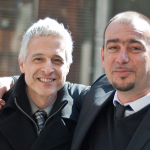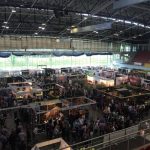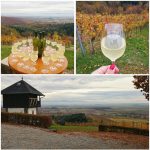As Stari Grad’s official 2400-year celebrations begin in Brussels on April 4, 2016, a look at one of the most exciting living aspects of its UNESCO World Heritage Site, more than two millenia after the arrival of the Greeks.
(EDITOR’S NOTE – Hvar winemaking legend Zlatan Plenkovic, who is featured in this article, sadly passed away last month. Read the Total Croatia News tribute to this Hvar icon here).
Six years ago, in June 2010, the Association of Hvar Winemakers was established, with the aim of promoting the island as a wine destination. The association soon launched the “Hvar – Island of Wine” project and brought together a dozen major local winemakers. The association puts emphasis on direct contact with customers, so in summer, in cooperation with local tourist boards, it organizes various events on the island’s squares, reports Poslovni.hr.
“Hvar is called the Island of Wine because of its long history in winemaking. The dynamic landscape of the island makes it interesting for the eye, but also in terms of vine growing. The steep slopes on the south side of the island range from Zavala, over Medvid Bad and Ivan Dolac all the way to Sveta Nedjelja, where ‘plavac mali’ is grown, as well as some other varieties such as ‘pošip’. These positions are bathed in sunshine and sea breezes, and are the most important parts of the Hvar vineyards, which produce the best wines. On the other side of the island, the landscape is very different, the mountain ridge breaks into the hills on which “plavac mali”, “darnekuša” and “bogdanuša” grow. The hills descend toward the Stari Grad Plain area, where mainly white varieties are cultivated, like ‘kuč’, ‘bogdanuša’, ‘maraština’, ‘prč’”, says Ivana Krstulović Carić, president of the Association.
In the Stari Grad Plain area, which is protected by UNESCO, grapes, olives and other Mediterranean cultures have been grown continuously for more than 24 centuries. The exact time of planting the first vineyards is not known, but it is certain that the production of wine was an important part of the economy of the Pharos colony. The wine was the basis for the economic growth of the island, but it was also the cause of great destruction. The arrival of American vine illnesses killed many of the vineyards, so the islanders lost their source of income and started moving out. Today, the Hvar vineyards cover less than ten percent of the former area. The stagnation has been present for the last hundred years, but now the Hvar winemakers of new generation could finally change that.
Zlatan Otok – Plenković
The Zlatan Otok family vineyard was founded by Zlatan Plenković in early 1986. He received the protected designation for premium wines in 1989, and then he started selling wines. “Our vineyards are on the south side of Hvar and near Makarska below Biokovo Mountain. The vineyard in the Šibenik area is owned by our other family business Vinoline. From the very beginning we have had success at national and international competitions and exhibitions in Zagreb, Split, Ljubljana, Zurich, Bordeaux… In Croatia, we have been twice selected as the vinery of the year. We have more than 100 prizes, medals and awards, as well as 20 champion awards”, says Zlatan’s son Nikola Plenković, who took charge of the winery together with his brother Marino.
Their vineyards extend from Milna over Sveta Nedjelja to Zavala, and “plavac mali” prevails. The processing of the vineyards is exclusively manual, with a yield of just 0.70 kg per vine. The wines of the Zlatan Otok vinery are produced on the 10 hectares of these vineyards and with grapes bought from other producers.
“In the Makarska area, under Biokovo near Baška Voda, we have 75 acres with about 650,000 vines. There we grow ‘plavac mali’, ‘crljenak’ (zinfandel), ‘merlot’, ‘cabernet sauvignon’, ‘syrah’, ‘pošip’, ‘žilavka’, ‘Dubrovnik malvazija’, ‘chardonnay’, ‘žuti muškat’. Our Makarska vineyards produced Pošip 2010, which was regional champion at the Decanter World Wine Awards 2012. We also process grapes from 65 hectares of the Šibenik vineyards”, says Plenković.
Since Svijet u Čaši started awarding the title of the best Croatian winemaker, Zlatan Plenković has always been among the best. After he was named Croatian wine knight in 2009, he could no longer compete for the title of the winemaker of the year.
Vina Carić
“Our family has always been engaged in wine making, and so we decided to establish the company Vino-Hvar. Vineyards are equally important part of the job for us as the winery. We have about 5 hectares of vineyards at different positions on Hvar, and we buy some grapes from farmers. We grow several indigenous varieties, “plavac mali”, “bogdanjuša”, “maraština”, “darnekuša” and “pošip”. Each wine has its own story, from the vineyard to the winery”, says the owner Ivo Carić. “Special qualities of our wines derive from the diversity of soil and micro-climate conditions of individual positions. Our vineyards in the Stari Grad Plain area are located at several locations between Jelsa and Stari Grad. Here we grow mostly white varieties like “bogdanjuša”, “kuča”, and “maraština” and “pošip”. The family has vineyards around Svirač. “From these positions come the grapes for our rose wine Rose Marino”, says the owner. Carić has vineyards on Plaže, on the south side of the island. The largest is in Zavala, and the steepest near the village of Ivan Dolac.
Winemaker Andro Tomić
Andro Tomić was born on the island of Hvar, and he has devoted his life to wine. After 20 years of professional training at universities, institutes and wineries in France and elsewhere, he decided to return to the island and start producing his own wine. Believing that Hvar can return to its long-lost reputation in winemaking, he continued the family tradition that dates back 150 years. Today the legendary wines like “1991” have proven that “plavac mali” can compete with world-renowned varieties and serve as a cornerstone for the renaissance of the Hvar winemaking. In 1997, Andro established the Bastijana company whose goals are producing excellent wines and promoting the culture of wine. “Our cellars are in a newly-built winery on the family estate in the Mina Bay in Jelsa, a town with a long vine growing and winemaking tradition. We produce 130,000 to 150,000 bottles a year and, along with members of our family, we employ 10 workers”, says Andro Tomić.
Visitors can visit the manufacturing part of the winery and tastings are organized in the cellars built on the model of ancient Roman dining rooms. In the old town of Jelsa there is a converted cellar of the family house where they opened a wine bar. In addition to a gallery of wines and items that bear witness to the years of the family winemaking tradition, one can experience a blend of past and life of the island today. And you can, of course, taste the wine. “The production of red wines, white wines and rose wines is improved with modern technology. Special attention is given to the production of ‘prošek’ – the original Dalmatian dessert wine made from selected and dried grapes.” Realizing that there is less and less people on the island who are growing vines, Tomić has decided to plant his own vineyards. Notable vineyards are located on the Pakleni Islands, in the Stari Grad Plain area and around Jelsa. “Wine has historically remained the foundation of life on the island. At the end of the last century, the island had 5,750 hectares of vineyards, more than 19 percent of its total area. Today we have only 300 hectares, with a further trend of decreasing”, said Tomić, whose Plavac Mali Barrique won the silver medal at Decanter 2010, while Robert Parker awarded him 89 points. Prošek Hektorović won the bronze medal.
Agricultural Cooperative Svirče
Agricultural cooperative Svirče has 88 members and about 100 subcontractors covering 120 hectares, some of it on the southern slopes of Hvar and some in the interior of the island around Svirče. The cooperative was founded in 1929, but it has changed through history. In 1999, it started producing wine itself. The head of the cooperative since 2001 has been Andrija Carić who developed organic farming on the southern part of the island. Members have made many efforts to educate producers about organic production. “Wines of the Agricultural Cooperative Svirče received awards at competitions at home and abroad. Ivan Dolac and Ivan Dolac Barrique have won gold medals at the Mundus Vini Biofach in Germany for the last two years”, says Carić. Svirče produces “bogdanuša”, “pošip”, “Hvar plavac”, “Svirče plavac”, “plavac reserve”, “plavac mediterano” and Ivan Dolac wines, as well as the Opolo rose.










